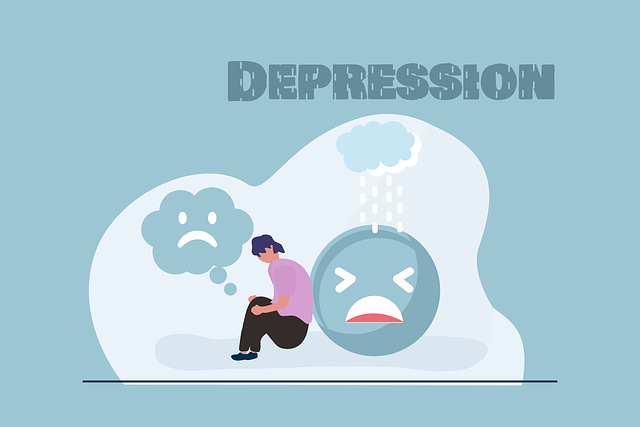Risk assessment is crucial for professions prioritizing human well-being, especially in therapeutic contexts like Parker Psychological Testing & Therapy, where mental wellness is paramount. This process involves identifying hazards, evaluating their severity, and implementing strategies to minimize harm. Parker Psychological Testing provides advanced psychometrics for personalized psychological profiles, revealing strengths, weaknesses, and triggers to enable targeted interventions focused on inner strength development. Harm Minimization Planning, a strategic approach, leverages evidence-based practices to prevent and reduce risks before escalation, fostering resilience and enhancing overall well-being. Integrating risk assessment and harm minimization within the Parker Psychological Testing Therapy framework offers comprehensive psychological assessments, tailored plans guided by Mind Over Matter principles, and regular reviews for adaptive support throughout treatment.
“Risk assessment and harm minimization planning are indispensable tools for therapists aiming to deliver safe, effective treatment. This article explores these critical components of clinical practice, offering a comprehensive guide for professionals. We begin by delving into the foundational concept of understanding risk assessment, followed by an in-depth look at Parker Psychological Testing as a method to uncover unique individual risk profiles. Subsequently, we present strategies for harm minimization planning and practical steps to seamlessly integrate these processes into therapy, enhancing patient outcomes through evidence-based practices.”
- Understanding Risk Assessment: A Cornerstone of Safe Practice
- Parker Psychological Testing: Unlocking Individualized Risk Profiles
- Harm Minimization Planning: Strategies for Effective Intervention
- Practical Steps for Integrating Risk Assessment and Harm Minimization in Therapy
Understanding Risk Assessment: A Cornerstone of Safe Practice

Risk assessment is a fundamental aspect of any profession involving human interaction and well-being. It involves identifying potential hazards and evaluating their likelihood and potential impact, enabling professionals to implement effective harm minimization strategies. This process is particularly crucial in therapeutic settings, such as those offered by Parker Psychological Testing & Therapy, where the primary goal is to foster mental wellness.
By conducting thorough risk assessments, therapists can create a safe and supportive environment for clients. This involves not just identifying risks but also understanding client vulnerabilities and strengths. Mindfulness meditation and mental wellness podcast series production, as therapeutic tools, are excellent examples of harm minimization strategies that can be integrated into practice to enhance client outcomes. Additionally, healthcare provider cultural competency training plays a significant role in ensuring diverse populations feel understood and supported throughout the risk assessment and treatment process.
Parker Psychological Testing: Unlocking Individualized Risk Profiles

Parker Psychological Testing is a powerful tool that goes beyond traditional risk assessment methods, offering a deeper understanding of individuals’ psychological profiles. By employing advanced psychometric techniques, this testing provides mental health professionals with valuable insights into their clients’ inner worlds. Each test tailored to an individual’s unique needs, revealing strengths, weaknesses, and potential triggers for harmful behaviors or thoughts. This personalized approach is pivotal in the context of risk management planning, allowing therapists to craft interventions that foster inner strength development.
The benefits extend beyond risk assessment; Parker Psychological Testing aids in identifying areas where confidence boosting strategies can be most effective. By pinpointing specific psychological traits and patterns, professionals can design targeted therapies, ensuring a more efficient path to client recovery. This proactive methodology not only minimizes potential harms but also paves the way for holistic mental health support, catering to each individual’s distinct needs within the therapeutic journey.
Harm Minimization Planning: Strategies for Effective Intervention

Harm Minimization Planning involves strategic interventions aimed at reducing potential risks and mitigating harm for individuals or communities. This proactive approach leverages evidence-based practices to address underlying issues before they escalate, focusing on prevention as a cornerstone of mental health awareness. By integrating coping skills development and mindfulness meditation techniques, these strategies empower individuals to navigate challenging situations more effectively.
Parker Psychological Testing Therapy offers valuable tools within this framework, providing assessments that identify risk factors and individual strengths. Through tailored interventions, individuals can learn to manage stress, regulate emotions, and build resilience—key components in enhancing overall well-being. Such planning fosters a culture of proactive mental health care, where early intervention and support contribute to lasting positive outcomes.
Practical Steps for Integrating Risk Assessment and Harm Minimization in Therapy

Integrating risk assessment and harm minimization into therapy is a multifaceted process that requires careful planning and practical steps. At the core of this approach lies the Parker Psychological Testing Therapy framework, which emphasizes a holistic understanding of clients’ mental wellness. The initial step involves comprehensive psychological assessments to identify potential risks and vulnerabilities unique to each individual. These evaluations not only pinpoint areas of concern but also uncover strengths that can be leveraged for resilience-building.
Subsequently, therapists should develop tailored harm minimization plans based on the assessment results. This entails designing interventions that align with Mind Over Matter Principles, fostering empathy building strategies within therapeutic sessions. Regular reviews and adjustments to these plans are crucial as clients progress through treatment, ensuring their mental wellness is actively supported throughout the journey.
Risk assessment and harm minimization planning are essential components of safe practice in therapy. By understanding these processes, as discussed through topics like Parker Psychological Testing and its role in unlocking individualized risk profiles, therapists can develop effective interventions using strategies outlined in this article. Integrating comprehensive risk assessment with tailored harm minimization planning enhances therapeutic outcomes, ensuring a more secure environment for clients. This approach, when applied diligently, enables therapists to provide personalized care that addresses risks and promotes positive change through Parker Psychological Testing therapy.














